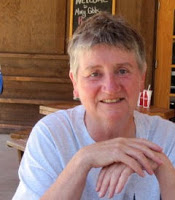I started smoking in my last year of high school. It was presented to me not as an option, but rather as “of course your going to smoke, adults do it and now that you are an adult there is no reason not to be a smoker.” This was early 1950’s and there was nothing in my conscious mind that told me I shouldn’t. I knew my parents would disapprove. They would think I wasn’t old enough. But what did they know? And in a year or so they would realize I was old enough to smoke.
In college most of us smoked. Between classes, before classes, and after classes, mornings, evenings, and weekends. At parties and in our rooms. The father of one of my classmates was the CEO of Reynolds tobacco. The tobacco companies were “in high cotton” in those days.
All our heroes and heroines smoked. In the movies the doctor consulting with his patient was sitting at his desk smoking a cigarette. The advertisements led you to believe that if you smoked, your image would improve and you would become much more sophisticated and successful. Everyone smoked from the Marlboro man to the savvy housewife. Everyone smoked everywhere from the workplace to any public place including public transportation vehicles, eating places, drinking places, shopping places, the doctor’s office, and, of course, at home.
I don’t actually remember how I got started. Probably someone gave me a cigarette. I do remember how it felt the first time I took a drag and inhaled. It made me dizzy and made me cough. It didn’t particularly taste good either, but I persisted and after a couple of tries I was hooked.
I’ve never done any drugs other than tobacco and I do drink alcohol, but rather sparingly.
Cigarettes were my addiction of choice. I smoked about one pack a day until the early sixties.
I smoked through 3 pregnancies, by the grace of God with no apparent consequences to the babies. Then the revelation that it was hazardous to one’s health started to trickle out into the public consciousness. I remember we started calling cigarettes “coffin nails. I think I’ll have a coffin nail. Ha, ha,” We would say to our friends, not realizing this was no joke.
I read now that the link between tobacco and health problems was suspected in the 1930’s. The link to lung cancer was discovered and confirmed in Britain in the early 1950’s. Apparently the American cigarette companies did a really good job of keeping the information regarding the health effects of smoking to themselves and away from the public. Finally some surgeon general came out with the pronouncement in 1964 that cigarette smoking could cause lung cancer. Finally, our government took steps to make it much harder to be a smoker. But 10 years had passed since the British doctors had linked smoking with cancer and other deceases.
Quitting smoking was one of the hardest things I have ever done in my life. I did quit by 1964 or so. But when I came out in the 80’s I wanted the comfort of an old “friend” so I resurrected my old friend, cigarettes, and in no time at all was hooked again after two decades of not smoking. After a couple of cigarettes it was as if I had never stopped smoking for those 20 years.
Quitting smoking a second time was at least 2X harder than the first. In fact, it took several years of trying to stop before I was successful in staying quit—as they say.
I tried several different programs designed to help boost one’s resolve or scare one into quitting by relating all the horrors caused by habitual smoking. After struggling many times to quit I realized that what I hated most about smoking was my being dependent on something. Those darn things were controlling my life. My daily activities revolved around when I would have my next cigarette. I hated being controlled enough finally to say goodbye to the horrible things. How many packs of cigarettes did I buy, smoke one, destroy the rest of the pack in my resolve to quit, only to return to the store the next day or so to do it again. In those days a pack cost bout $1.25. That’s a lot of money for one cigarette.
I have seen friends of my age group with the same smoking history quit for a year or so, declare they can quit if they want to, and then return to smoking confident they can quit if they have to.
For one thing one year of no smoking is no where near long enough to be able to say you are free of the habit.
It is not only the drug nicotine that is addictive. Smoking quickly becomes a behavior addiction.
I think this is why it takes years and years to be free of the habit—long after all traces of the drug have left the body.
In my experience after five tobacco free years, I could say I was more or less safe from the danger of slipping back into the habit. As to the damage done to my body is concerned, I have no idea whether or not having smoked cigarettes for one quarter of my life will take a significant toll. But I have no doubt there must be some price to pay, hopefully insignificant. Did I benefit in any way from taking up the habit? That’s a no brainer. NO! Some say it’s pleasant to smoke. What that really means is that when the withdrawal from the drug begins to make you feel uncomfortable it feels pleasant to ward off the encroaching discomfort by lighting up once again.
Today the proven detrimental effects of smoking are known to almost everyone. Tobacco companies are held responsible for the harm their product causes in the U.S. Cigarette sales have plummeted in the U.S. in recent decades and young people do not seem to be taking up the slack and are choosing not to smoke.
Despite what is happening here big tobacco is thriving globally. Smoking rates in developing countries far exceed those here. Population growth and growing incomes contribute largely to the increasing rates of tobacco use in those countries. So cigarettes will continue to be produced and sold in growing amounts.
Because of my love affair with cigarettes I learned something very important about myself.
I learned to stay away from addictive substances of any kind. Once I had quit smoking I never ever wanted to go through quitting anything addictive again. For that lesson I am grateful.
© 15 August 2016
About the Author
Betsy has been active in the GLBT community including PFLAG, the Denver Women’s Chorus, OLOC (Old Lesbians Organizing for Change), and the GLBT Community Center. She has been retired from the human services field for 20 years. Since her retirement, her major activities have included tennis, camping, traveling, teaching skiing as a volunteer instructor with the National Sports Center for the Disabled, reading, writing, and learning. Betsy came out as a lesbian after 25 years of marriage. She has a close relationship with her three children and four grandchildren. Betsy says her greatest and most meaningful enjoyment comes from sharing her life with her partner of 30 years, Gillian Edwards.


